Big cats have always intrigued us with their majestic presence and mysterious behaviors. While they might seem vastly different from the furry companions lounging in our living rooms, many big cat species form family bonds that are surprisingly similar to those of domestic cats. These bonds are not just fascinating but also essential for their survival in the wild. Let’s delve into the world of these magnificent creatures and discover how they nurture their kin, just like our beloved house cats.
Lions: The Social Kings of the Jungle
Lions are perhaps the most well-known big cats that exhibit strong family bonds. Unlike other big cats, lions live in groups called prides. A pride typically consists of several related females, their offspring, and a few adult males. This social structure allows them to protect their territory and raise their young together. Female lions, or lionesses, often give birth around the same time and help each other care for the cubs. This cooperative behavior is akin to a neighborhood of house cats that watch over each other’s kittens. It’s a beautiful testament to their social nature and the importance of family ties in their survival.
Cheetahs: The Speedy Single Mothers
Cheetahs are known for their incredible speed, but they are also remarkable mothers. Female cheetahs raise their cubs alone, teaching them crucial survival skills. This period of close bonding is vital as the cubs learn to hunt and evade predators. The mother cheetah’s dedication is similar to a house cat’s, nurturing her kittens until they are ready to face the world. Despite the challenges of raising cubs solo, the mother cheetah’s commitment ensures her offspring’s success, highlighting the strength of their family bond.
Tigers: Solitary Yet Devoted Parents
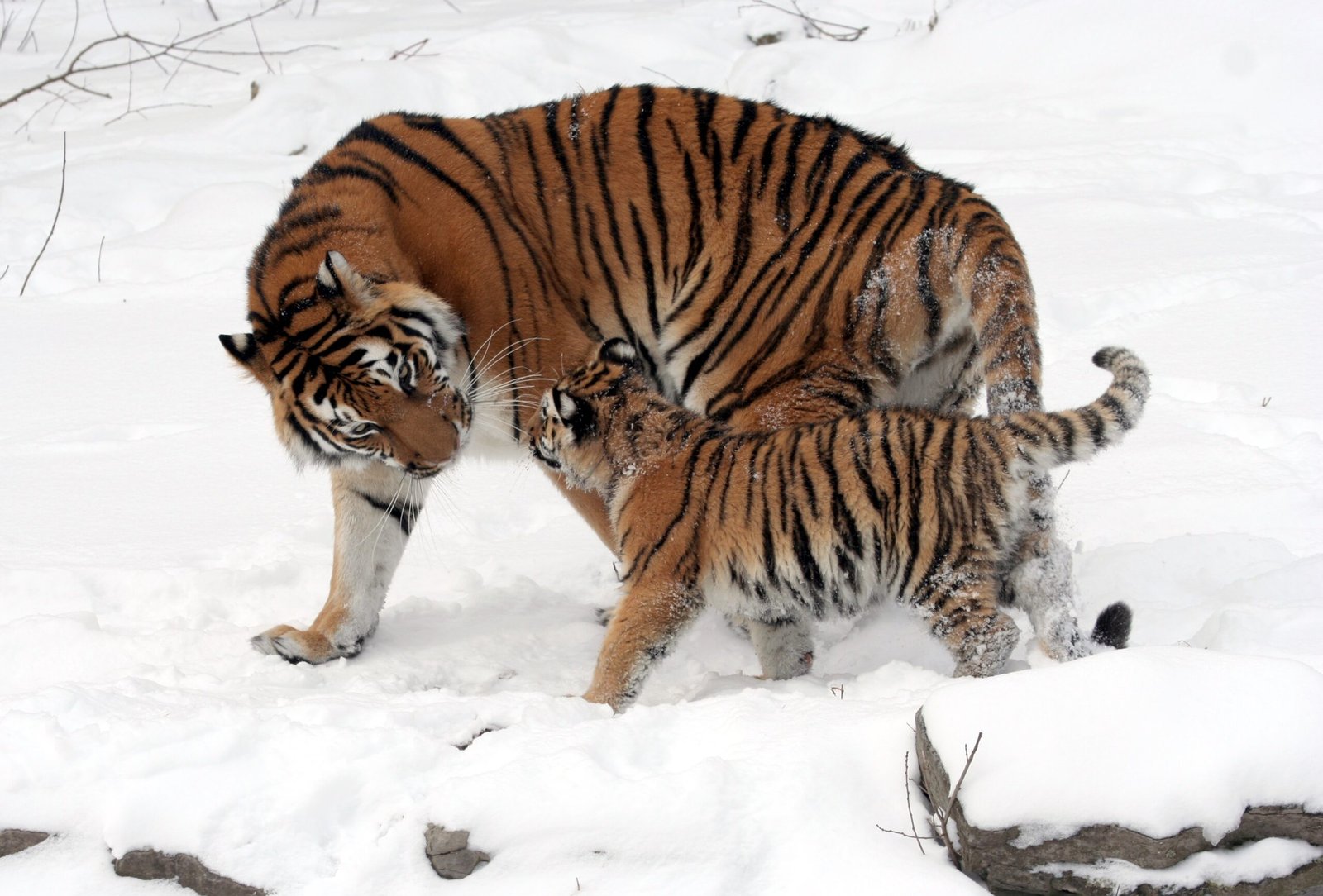
Tigers are solitary animals, but when it comes to parenting, they are fiercely devoted. A tigress will spend up to two years raising her cubs, teaching them everything from hunting to recognizing threats. This extended period of care is reminiscent of a house cat’s close relationship with her kittens. The tigress ensures her cubs are well-prepared for independence, demonstrating the depth of her maternal bond. Despite their solitary nature, tigers’ commitment to their young is unwavering, showing that family bonds transcend social behavior.
Leopards: The Stealthy Protectors
Leopards are elusive and stealthy, yet they form strong bonds with their cubs. A mother leopard is highly protective, often moving her cubs to new locations to keep them safe from predators. This behavior mirrors a house cat’s instinct to hide her kittens in safe spots. The mother leopard’s vigilance ensures her cubs grow up in a secure environment. Her dedication is a testament to the deep familial bonds that exist even among the most solitary of big cats.
Snow Leopards: The Ghosts of the Mountains
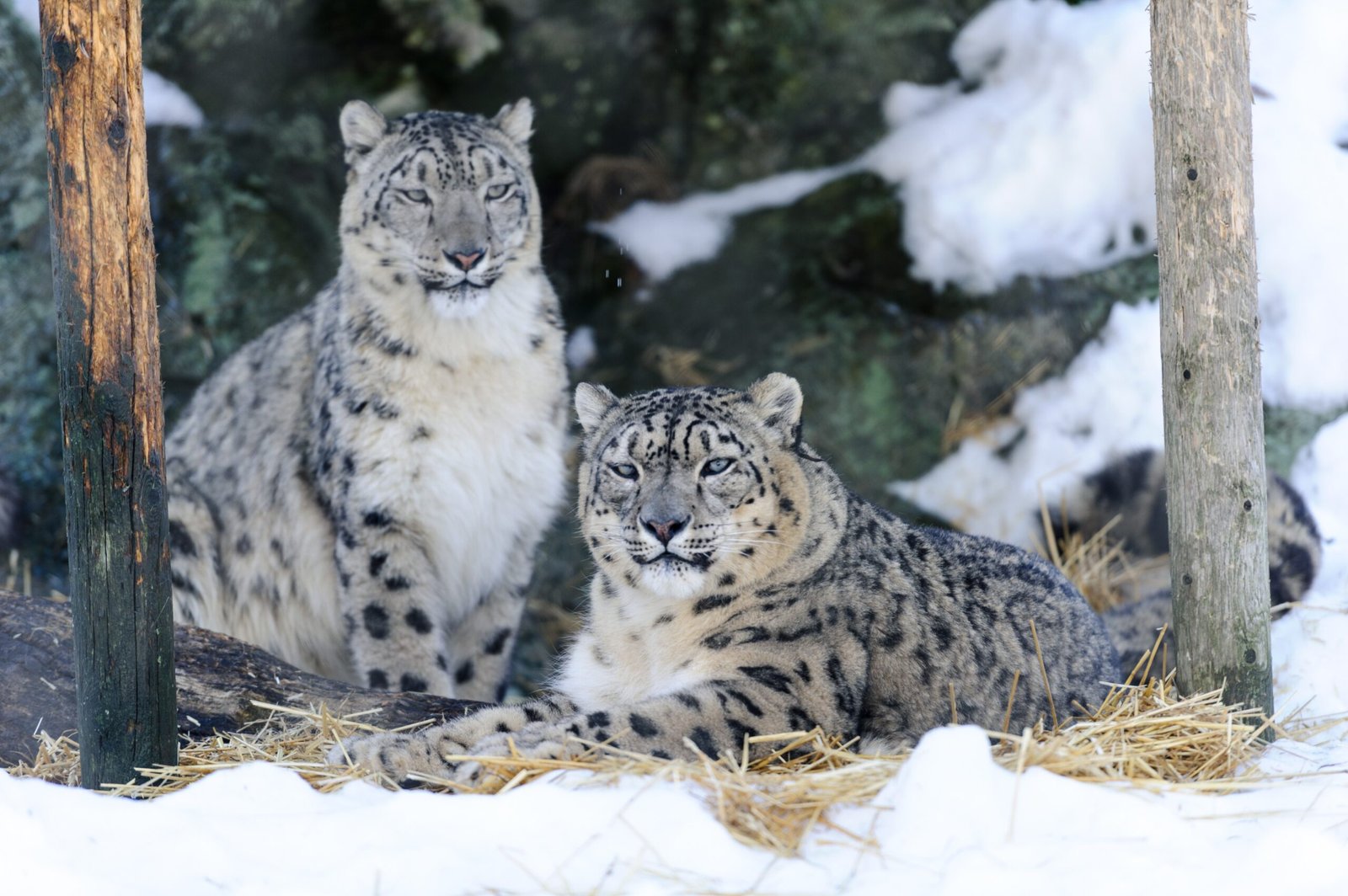
Snow leopards, often referred to as the “ghosts of the mountains,” are solitary and elusive, yet they form strong family bonds. A mother snow leopard will raise her cubs in the rugged terrain, teaching them how to navigate their snowy habitat. This bond is essential for the cubs’ survival in such a harsh environment. The mother’s guidance and protection are reminiscent of a house cat’s care for her kittens, ensuring they are well-equipped for life’s challenges. Despite their solitary reputation, snow leopards’ family bonds are crucial for their young’s survival.
Jaguars: The Solitary Guardians
Jaguars are solitary creatures, but their bond with their cubs is profound. A jaguar mother will fiercely protect her young, teaching them to hunt and fend for themselves. This nurturing period is vital for the cubs’ survival, as they learn the skills needed to thrive in the wild. The jaguar’s commitment to her offspring mirrors the dedication of a house cat to her kittens, showcasing the universal importance of family bonds. Despite their solitary nature, jaguars’ devotion to their young is unwavering.
Pumas: The Silent Caregivers
Pumas, also known as cougars or mountain lions, are solitary animals with a strong maternal bond. A puma mother will raise her cubs for up to two years, teaching them to hunt and survive in various terrains. This extended care period is similar to a house cat’s nurturing of her kittens, ensuring they are well-prepared for independence. The puma’s dedication to her offspring is a testament to the strength of family bonds, even in solitary species. Her commitment ensures her cubs’ success in the wild.
Clouded Leopards: The Enigmatic Nurturers
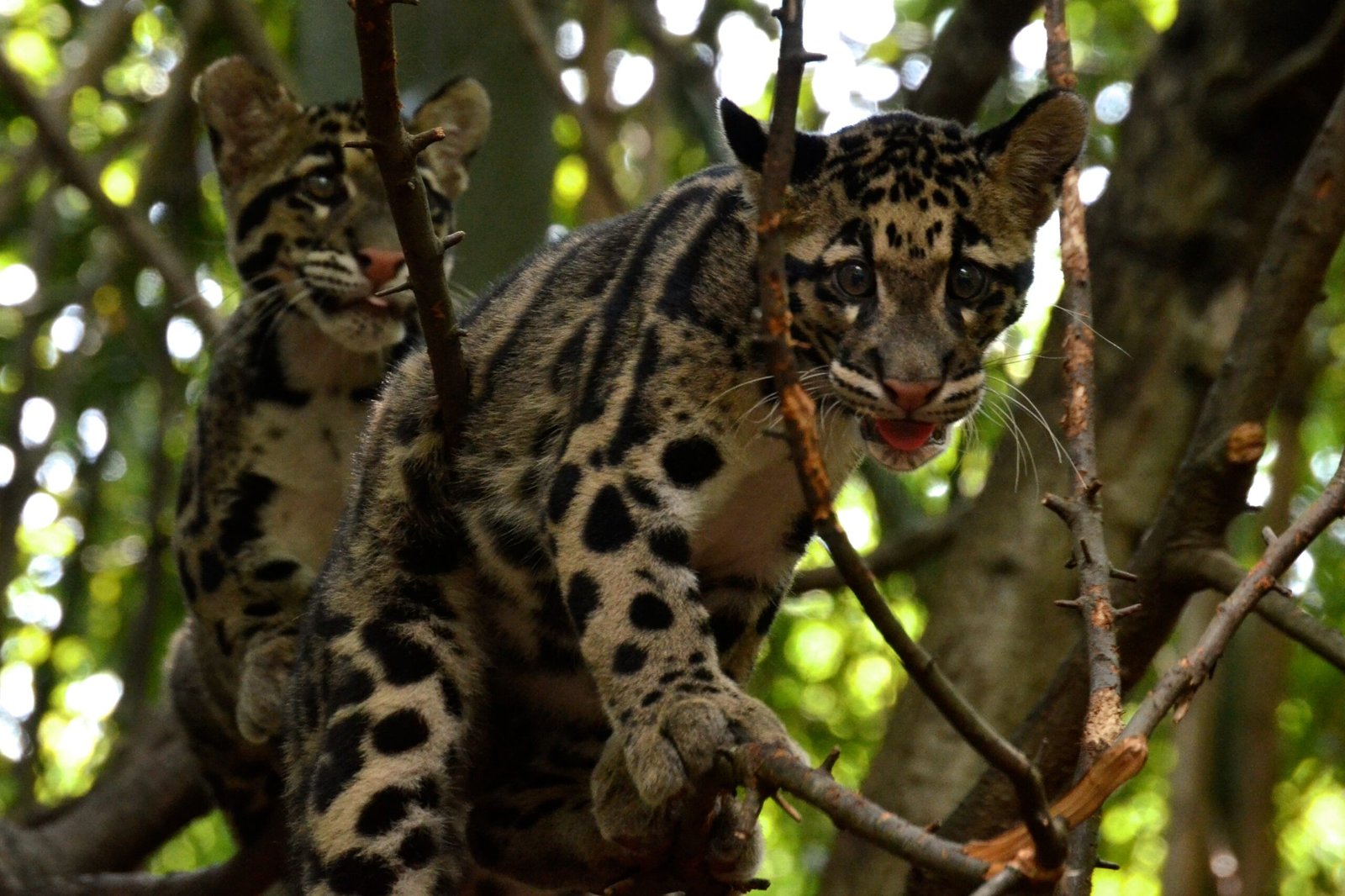
Clouded leopards are mysterious and elusive, yet they form strong family bonds. A mother clouded leopard will raise her cubs in dense forests, teaching them to navigate their complex environment. This nurturing period is crucial for the cubs’ survival, as they learn essential skills from their mother. The clouded leopard’s dedication to her young is reminiscent of a house cat’s care for her kittens, highlighting the universal nature of family bonds. Despite their enigmatic reputation, clouded leopards’ devotion to their offspring is unwavering.
Caracals: The Silent Guardians
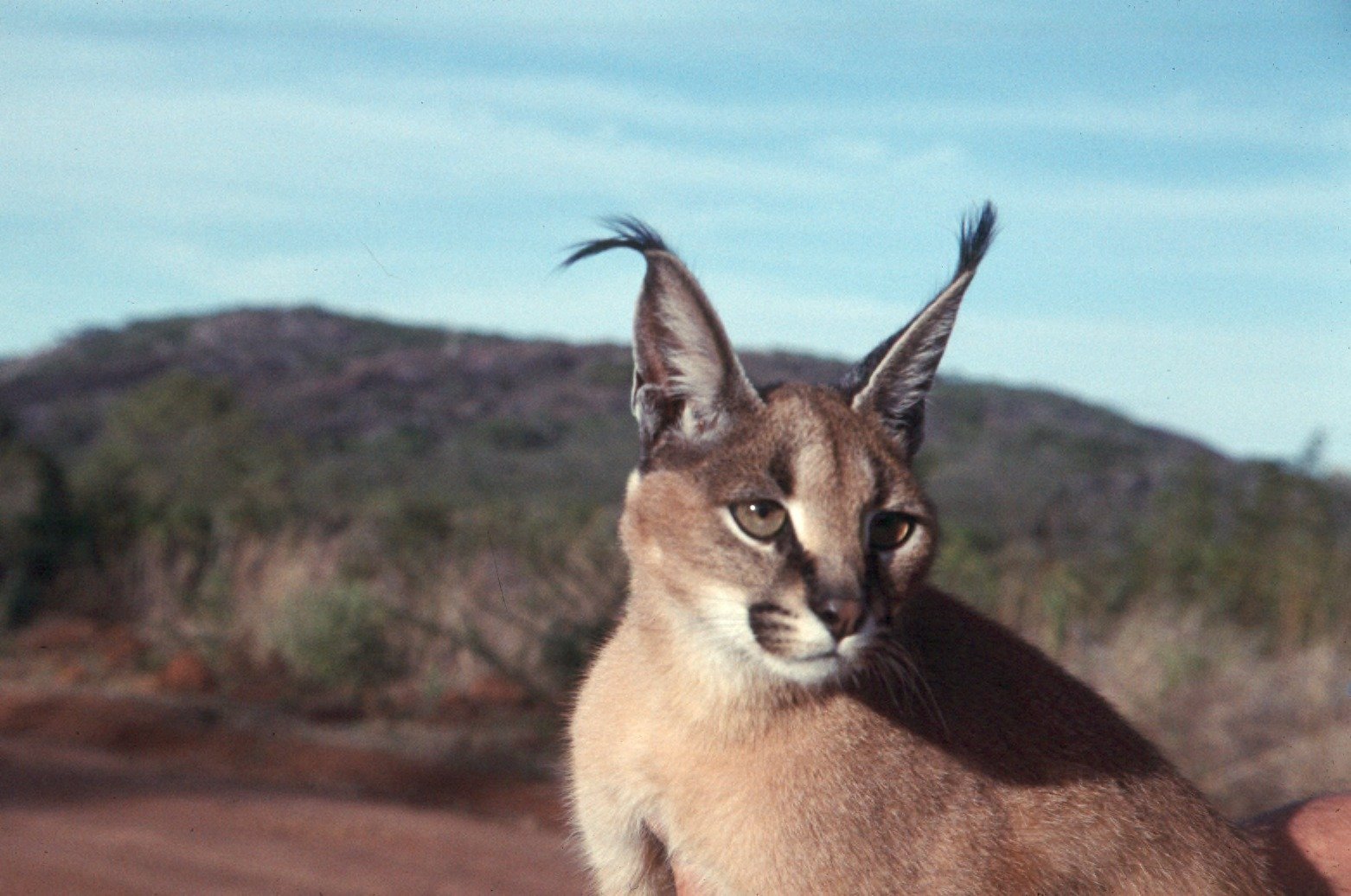
Caracals, with their striking appearance and tufted ears, are solitary but form strong bonds with their young. A caracal mother will fiercely protect her kittens, teaching them to hunt and evade predators. This nurturing period is vital for the kittens’ survival, as they learn essential skills from their mother. The caracal’s commitment to her offspring mirrors the dedication of a house cat to her kittens, showcasing the universal importance of family bonds. Despite their solitary nature, caracals’ devotion to their young is unwavering.
Servals: The Stealthy Nurturers
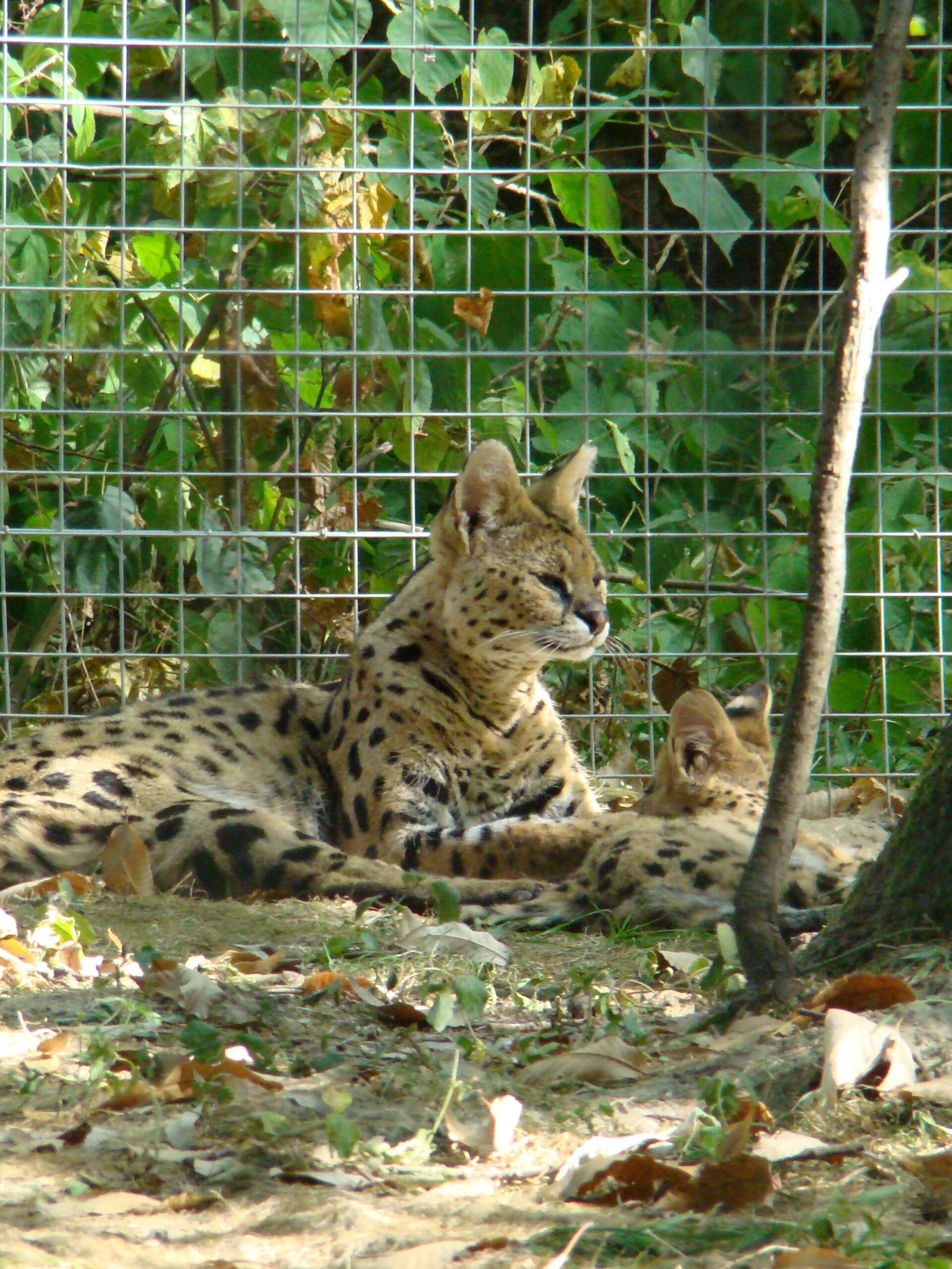
Servals are solitary, yet they form strong bonds with their young. A serval mother will raise her kittens, teaching them to hunt and survive in their grassy habitats. This nurturing period is crucial for the kittens’ survival, as they learn essential skills from their mother. The serval’s dedication to her offspring is reminiscent of a house cat’s care for her kittens, highlighting the universal nature of family bonds. Despite their solitary reputation, servals’ devotion to their young is unwavering.
Through these magnificent big cats, we see that family bonds are not exclusive to our domestic companions. Whether in the dense jungle, snowy mountains, or open savannah, these bonds are essential for survival. Like our house cats, these wild felines demonstrate that family connections are a fundamental part of life, transcending species and habitats.

Suhail Ahmed is a passionate digital professional and nature enthusiast with over 8 years of experience in content strategy, SEO, web development, and digital operations. Alongside his freelance journey, Suhail actively contributes to nature and wildlife platforms like Feline Fam, where he channels his curiosity for the Feline into engaging, educational storytelling.
With a strong background in managing digital ecosystems — from ecommerce stores and WordPress websites to social media and automation — Suhail merges technical precision with creative insight. His content reflects a rare balance: SEO-friendly yet deeply human, data-informed yet emotionally resonant.
Driven by a love for discovery and storytelling, Suhail believes in using digital platforms to amplify causes that matter — especially those protecting Earth’s biodiversity and inspiring sustainable living. Whether he’s managing online projects or crafting wildlife content, his goal remains the same: to inform, inspire, and leave a positive digital footprint.






